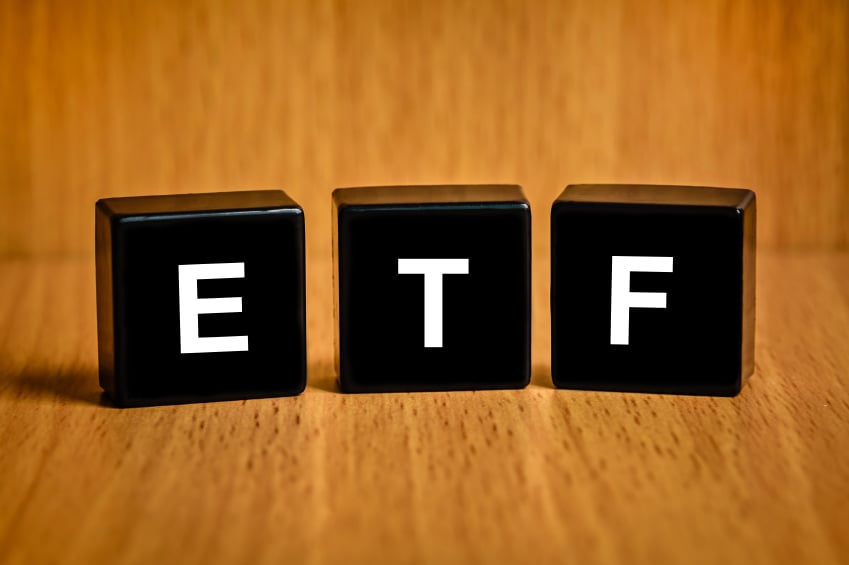

The industry’s first nontransparent ETFs will likely hit the market in a matter of weeks, but advisers might not be lining up for them.
Last week, Goldman Sachs became the latest firm to seek the Securities and Exchange Commission’s blessing for a line of exchange-traded funds that use Precidian Investments’ proprietary ActiveShares model. That design, which requires exemptive relief from the SEC, allows ETFs to avoid disclosing their holdings daily. Many active managers see that detail as extremely valuable, as it can prevent competitors from copying their strategies.
Active managers “don’t want to be the one at the poker table showing everyone their hand,” said Ben Johnson, director of global ETF research at Morningstar.
Other fund shops also have asked for exemptive relief, most notably American Century, which last year became the first licensee to get regulatory approval. That company has since filed prospectuses for a line of ActiveShares ETFs and will almost certainly be the first to bring them to market.
Predician, an affiliate of Legg Mason, so far has signed licensing deals with 14 asset managers that collectively represent as much as $14 trillion in assets under management, said Dan McCabe, Chief Officer at Precidian. And the firm has 37 other asset managers that are in the process of signing such deals, he said.
Because active managers can package some of their strategies in ETFs, they can sell them at lower costs compared to traditional mutual funds, he said. For advisers, switching out traditional mutual funds for comparable nontransparent ETFs makes sense.
“[Advisers] want to be vehicle-agnostic,” Mr. McCabe said. “You’re going to see very rapid adoption, so they can fill all these various sleeves for the client.”
The ETFs will have several things working in their favor, including lower fees than active mutual funds and tax efficiency, as they can meet redemption requests in kind, Mr. Johnson said.
But the nontransparent ETF models approved by the SEC are currently limited in the asset classes they can hold, and the products will be required to carry disclosures similar to Surgeon General warnings on cigarette packages, Mr. Johnson said.
That gives the universe of existing ETFs a big advantage over the new entrants, he said. “I don’t think among advisers that there is anyone wringing their hands and awaiting these things coming to market,” Mr. Johnson said. Conversely, fund firms and exchanges “are not fiduciaries, so they don’t care if this is good for investors.”
The companies providing the frameworks, including Precidian, have said that they will seek approval for a wider range of asset classes in which the nontransparent ETFs can invest.
Goldman’s disclosure for its proposed products says that they carry advantages and disadvantages. The ETFs could carry more risks because they don’t disclose holdings daily, and investors can end up paying higher trading costs than with traditional ETFs, according to a regulatory filing. However, the products have the potential to outperform competitors because of that lack of daily holdings disclosure, according to Goldman.
Goldman first announced its intention to launch ActiveShares products in mid-2019. The company’s exemptive relief request with the SEC was first reported Thursday by Ignites.
Precidian spent the better part of a decade developing the structure for ActiveShares and seeking regulatory approval, so many investment professionals are already aware of it, Mr. McCabe said.
Currently, there are no nontransparent ETFs on the market. Instead, there are only three related products that have licensed the Eaton Vance’s NextShares exchange traded product model, a design that initially garnered interest among asset managers at its launch three years ago but has since been abandoned for the most part. The three such products, all sponsored by Eaton Vance, represented about $20 million as of the end of December, according to data from Morningstar Direct.
Following the SEC’s approval last year of Precidian’s model, other firms have been granted exemptive relief to bring their own nontransparent ETF models the market, including Fidelity, T. Rowe Price, the New York Stock Exchange and a firm called Blue Tractor. Eaton Vance is seeking approval for a separate nontransparent ETF model, which it calls Clearhedge.
Fund shops must get approval from the SEC’s Division of Investment Management and then from its Division of Markets and Trading before they can launch the nontransparent ETFs, Morningstar’s Mr. Johnson said.
“We’re weeks away, if not months, from seeing the first funds that leverage these formats,” he said.

The looming threat of federal funding cuts to state and local governments has lawmakers weighing a levy that was phased out in 1981.

The fintech firms' new tools and integrations address pain points in overseeing investment lineups, account monitoring, and more.

Canadian stocks are on a roll in 2025 as the country prepares to name a new Prime Minister.

Carson is expanding one of its relationships in Florida while Lido Advisors adds an $870 million practice in Silicon Valley.

The approval of the pay proposal, which handsomely compensates its CEO and president, bolsters claims that big payouts are a must in the war to retain leadership.
RIAs face rising regulatory pressure in 2025. Forward-looking firms are responding with embedded technology, not more paperwork.
As inheritances are set to reshape client portfolios and next-gen heirs demand digital-first experiences, firms are retooling their wealth tech stacks and succession models in real time.
